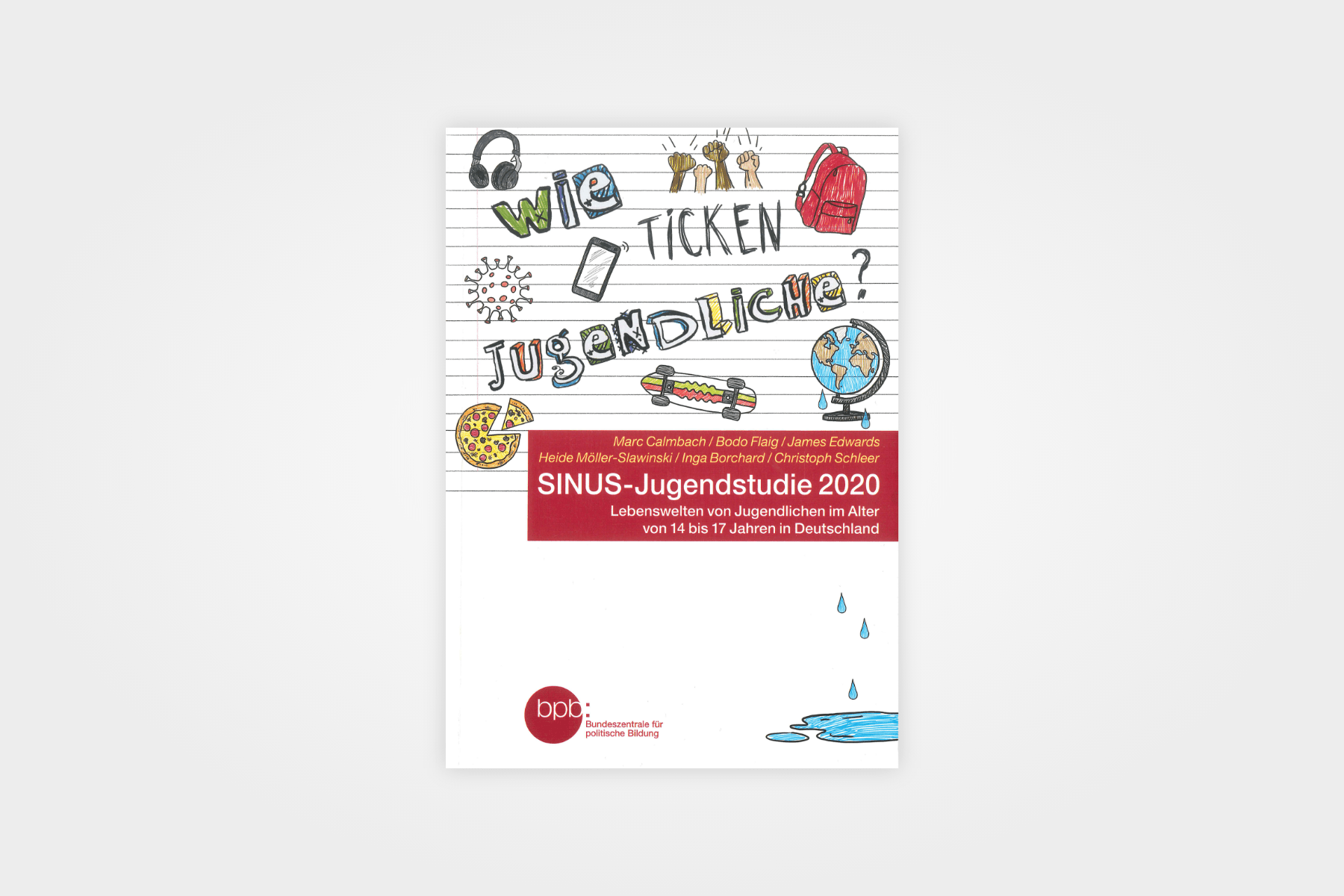How do young people tick? (2020)

Lifeworlds of adolescents aged 14 to 17 in Germany
Every four years since 2008, SINUS-Institut has published a series of studies entitled “Wie ticken Jugendliche?” (“How do young people tick?”). The guiding research questions are: How do young people live and experience their everyday lives? What values are they guided by, and what life plans and styles do they pursue? In addition, the SINUS Youth Study 2020 addresses the topics of politics, health, sports, career choice processes, and well-being and participation at school. In response to current events, the study has been expanded to include an additional survey and a special chapter on the Corona crisis. Among other things, this shows how young people perceive the extensive changes during the crisis and what influence this exceptional situation has on their future prospects, their political interest and their health behavior.
The study shows the following:
- Many young people today are serious and problem-conscious. The hedonistic mentality once so typical of young people is continuing to decline and change: hip young lifestyles, partying, fun and action are losing in importance.
- For most people, safety, stability and security are more important than change and upheaval. The seriousness of the situation and the lack of clarity in the world’s circumstances are reinforcing the social megatrend of “regrounding” – the search for a sense of belonging, support and orientation. Today’s youth generation is also strongly influenced by this.
- The negative consequences of individualization are becoming more apparent. The sociocultural trend of extroversion and self-centeredness, which has been virulent for many years, has weakened considerably in the younger generation. Young people complain of an “every man for himself” mentality Conclusion and a lack of cohesion in society. Many are afraid of increasing polarization, hatred and aggression.
- Young people feel they are not being heard enough and are not being taken seriously. The problem of climate change and environmental protection is of great concern to the young generation. The increasing destruction of the foundations of life on earth is perceived by young people as crucial to their future and has become a central issue of intergenerational justice.
In addition to findings that apply to youth as a whole, the study aims to identify differences between the various lifeworlds. To this end, the diversity of teenagers’ lifeworlds in Germany was typologically condensed into a value-based model (“Sinus Youth Milieus”). This approach can help tailor youth programs to specific target groups, for example in civic education or health education.
The study has been published as a printed book in the series of the Federal Agency for Civic Education (Bundeszentrale für politische Bildung/bpb) and is also available for download free of charge.
Principals:
Federal Agency for Civic Education (bpb), Office for Youth Pastoral Care of the German Bishops’ Conference (afj), BARMER, Federation of German Catholic Youth (BDKJ), German Football Association (DFB), German Children and Youth Foundation (DKJS), German Sport Youth (dsj) and DFL Foundation.
